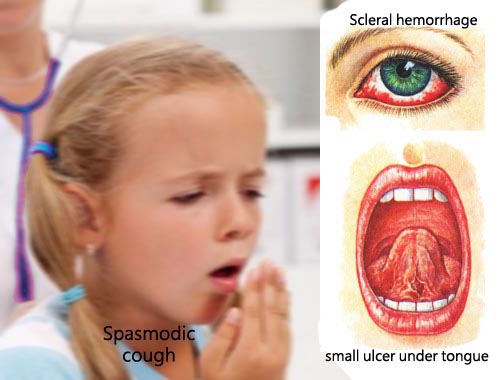Pertussis
Pertussis, a respiratory illness commonly known as whooping cough, is a very contagious disease caused by a type of bacteria called Bordetella pertussis. These bacteria attach to the cilia (tiny, hair-like extensions) that line part of the upper respiratory system. The bacteria release toxins, which damage the cilia and cause inflammation (swelling). Three identifiable stages: catarrhal, paroxysmal, and convalescent. Initial symptoms may be cold-like in nature, with rhinorrhea and lacrimation, or a dry cough followed by episodes of severe coughing. Fever may be absent or low-grade. Inspiratory whooping is a characteristic symptom of disease. Culture of the bacterium Bordetella pertussis from nasal secretions can confirm the diagnosis. Antibiotic therapy is effective in reducing the severity of pertussis if administered early in the course of the disease, or as prophylaxis to reduce risk of transmission. Macrolides are preferred first-line treatment. Trimethoprim (sulfamethoxazole) is an alternative if macrolides are contraindicated.
